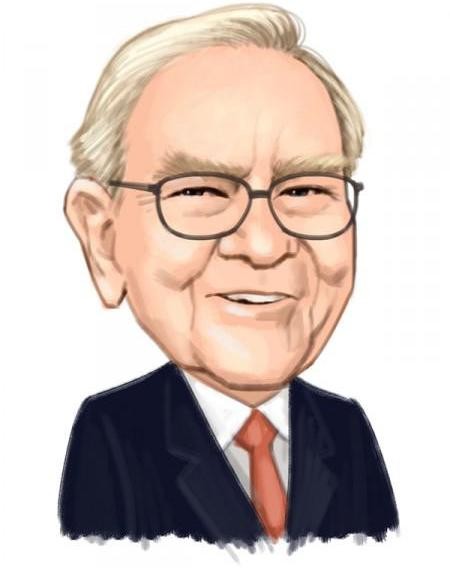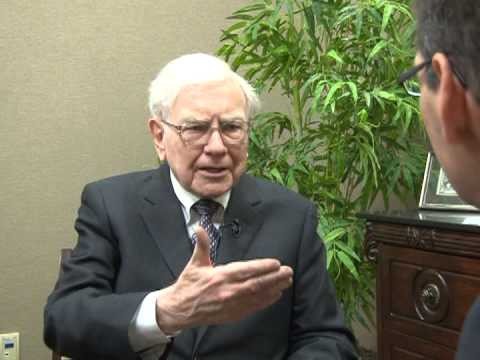Warren Buffett’s Latest Whopper of a Yield Deal
Post on: 27 Июль, 2015 No Comment

Updated from 9:51 a.m. EDT with dividend on Berkshire preferred stake and analyst commentary
NEW YORK (TheStreet ) — Berkshire Hathaway’s (BRK.A ) Warren Buffett has once again found a deal that is too juicy to pass up in Burger King Worldwide’s (BKW ) proposed takeover of Canadian coffee-chain Tim Hortons (THI — Get Report ). Buffett has agreed to finance a piece of the deal by making a $3 billion preferred stock investment in Burger King that will carry a dividend yield of 9%.
The preferred stock deal represents yet another investment that is available only to Buffett and Berkshire’s shareholders and is out of reach for most investors. Berkshire’s financing commitment will supplement $9.5 billion Burger King is raising from bond markets to buy Tim Hortons for 89.32 Canadian dollars ($81.47) a share, in a cash and stock deal that will give Brazilian private equity firm 3G Capital a 51% ownership stake in the combined company.
Deals like the Burger King preferreds are common for Berkshire Hathaway. During the financial crisis, Berkshire made billions of dollars loaning money to the likes of Mars , Goldman Sachs (GS ). General Electric (GE ). Swiss Re (SREN ). Dow Chemical (DOW ) and later Bank of America (BAC ) through large preferred investments.
Berkshire supplied Goldman with $5 billion in a preferred deal that paid a 10% dividend. A $3 billion deal with GE also carried a 10% dividend yield, and a $5 billion Bank of America deal carried a 6% dividend yield. Berkshire also supplied Swiss Re with CHF 3 billion ($3.28 billion) at a 10% dividend yield, and Dow Chemical, $3 billion at an 8.5% dividend yield.
While most of those preferred stakes have since been redeemed, Berkshire still benefits from stock warrants the firm negotiated when making those investments.
Berkshire owns a 2.8% stake in Goldman Sachs, which it effectively acquired for a total cost of $0. The conglomerate also has a right to buy 700 million Bank of America shares for $5 billion by 2021. a stake that is in the green by more than $6 billion.
When Goldman, GE and Bank of America came to Berkshire for emergency cash during the crisis, Buffett negotiated some of the savviest deals of his career, which also represented a turning point for those corporations as they worked to survive the worst financial panic since the Great Depression. With no major crisis currently on the horizon, deals like Berkshire’s preferred stake in Burger King indicate that there are still plenty of ways that Buffett can make more money and at a lower risk than even the most sophisticated investors.
Buffett appears to have found a new template in using preferred stakes to finance large takeovers. Berkshire Hathaway loaned $8 billion to 3G Capital in its $23 billion takeover of Heinz in 2013. That deal carried preferred dividends of 9%, which Berkshire said would provide effective yields in the neighborhood of 12% as a result of other contingencies.
On a conference call with investors on Tuesday, Burger King said Berkshire’s preferred shares will carry a 9% coupon. The remaining financing, however, will come at market rates that stand at roughly 300 basis points over LIBOR, Burger King said.
When combined, Berkshire’s Heinz and Burger King stakes will be almost enough in size to replace the company’s previous yield-generating stakes in Goldman, GE and Mars, which have all been redeemed in recent years. In fact, it took Berkshire less than a year to find a replacement for $4 billion worth of Mars preferreds that were redeemed last October.
Berkshire’s Playbook Goes 3G
As Buffett noted in his annual letter. the Heinz deal represented a new way for Berkshire Hathaway to find rich yields, and one that isn’t reliant on a financial crisis.
With the Heinz purchase, moreover, we created a partnership template that may be used by Berkshire in future acquisitions of size, Buffett said in Berkshire’s annual letter to shareholders. In that deal, Berkshire teamed up 3G’s Jorge Paulo Lemann, Bernardo Hees and Alex Behring.
He is doing so, once again, with Burger King.
There is one apparent difference between Berkshire’ Heinz deal and its participation in Burger King’s takeover of Tim Hortons. Berkshire also bought 50% of Heinz common stock for $4.25 billion in the ketchup-maker’s takeover. There is no indication Berkshire will buy any Burger King common shares in Tuesday’s deal.

On Monday, Bank of America analysts upgraded Burger King, citing the combined company’s potential for international growth.
Growing Tim Hortons abroad would address saturation concerns in the company’s Canadian market, Bank of America said. The combined company would also benefit from Burger King’s existing international franchise infrastructure, which includes equity states in franchisee joint ventures in Brazil, China, France, India, Mexico, Russia and South Africa, the analysts concluded.
Tim Hortons shares were rising over 9% in early Tuesday trading to $81.51, while Burger King shares were slipping over 2% after gaining nearly 20% on Monday.
The Inversion Debate
A final note: Burger King’s takeover of Tim Hortons will shift the company’s headquarters to Canada, technically qualifying as a so-called inversion transaction, a financial structure increasingly referred to as tax dodge in Washington and on Wall Street. The deal may allow Burger King to lower its tax bill on foreign earnings, however, it will do little to impact the company’s earnings in the United States, where it generates a majority of sales and revenue.
Buffett has played a prominent role in a national debate on taxation. arguing that income tax rates are too low for billionaires like himself. Some may argue that his financing of an inversion, in combination with many deals Berkshire has cut to minimize its tax bill on investment gains, reeks of hypocrisy.
That may be an oversimplification. Berkshire has the most at stake in the debate on corporate taxation and it historically has paid near the U.S. rate. In 2014, Berkshire became the company with the most cash parked in the U.S. as others like Apple (AAPL ) and Microsoft (MSFT ) park money offshore, and it remains one the biggest investors in America. Berkshire’s subsidiaries invested $11 billion on plant and equipment in 2013, 89% of which was spent in the U.S.
Though we invest abroad as well, the mother lode of opportunity resides in America, Berkshire said in its 2013 investor letter.
— Written by Antoine Gara in New York














